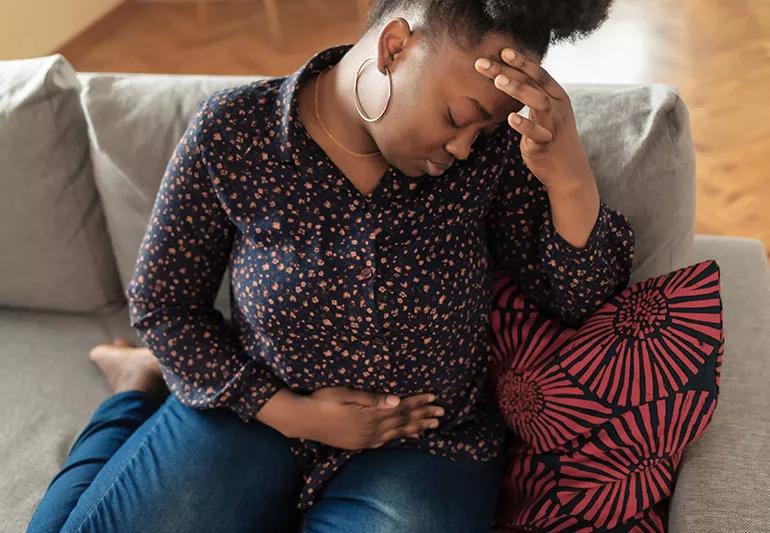Here’s why it can be so hard to poop when you’re preggo

You’ve read up on what to expect when you’re expecting, but you probably didn’t expect to have so much trouble pooping. Constipation is a common side effect of pregnancy, and there are steps you can take to try to remedy it.
Advertisement
Cleveland Clinic is a non-profit academic medical center. Advertising on our site helps support our mission. We do not endorse non-Cleveland Clinic products or services. Policy
Ob/Gyn Stacie Jhaveri, MD, explains why you can’t seem to go and what you can do about it.
If you’ve already bought the classic children’s book Everybody Poops for your new little one, you may be feeling the irony that this new little one is the reason you can’t currently poop.
Why exactly does being pregnant stop you up so badly? Dr. Jhaveri explains.
If you’re feeling constipated, but it’s not quite time to pee on a stick to see if you’re pregnant, you may be looking for early signs of conception. But constipation isn’t the sign you’re looking for.
Advertisement
“Constipation can have a number of causes unrelated to pregnancy, so constipation in and of itself is not indicative of pregnancy,” Dr. Jhaveri says. “And pregnancy-related constipation doesn’t typically appear until month two or three.”
Constipation can cause hemorrhoids, swollen veins that appear as painful lumps on your anus, and can make existing hemorrhoids even more painful. They might form as a result of increased circulation and pressure on the rectum and vagina from your growing baby.
If you’re desperately trying to figure out how to relieve constipation during pregnancy, look no further.
Dr. Jhaveri shares helpful tips for finding relief and getting your insides in order — and if you’re pregnant but not constipated, these same tips can help you avoid it. “Most of these are just healthy principles to follow when you are pregnant,” she says, “and fortunately, they can also help to prevent constipation.”
Advertisement
Learn more about our editorial process.
Advertisement

Most rashes aren’t dangerous — but it’s worth talking to your pregnancy provider about them

The best available evidence indicates that, used correctly, acetaminophen is safe to take throughout a pregnancy

Prenatal massage, done properly, is a safe and effective way to lower stress and relieve pregnancy discomforts

Avoid high-mercury fish and processed meat, and go easy on salt and caffeine

Unless your healthcare provider tells you otherwise, it’s typically considered safe to have sex during pregnancy

Hot tubs and saunas raise your body temperature and can pose risks

Baths can be safe if you turn down the temp, avoid irritating bath products and take extra precautions against

SSRIs are the safest antidepressants to take in pregnancy — and pose less risk than unmanaged depression

Wearing a scarf, adjusting your outdoor activities and following your asthma treatment plan can help limit breathing problems

Your diet in the weeks, days and hours ahead of your race can power you to the finish line

When someone guilt trips you, they’re using emotionally manipulative behavior to try to get you to act a certain way